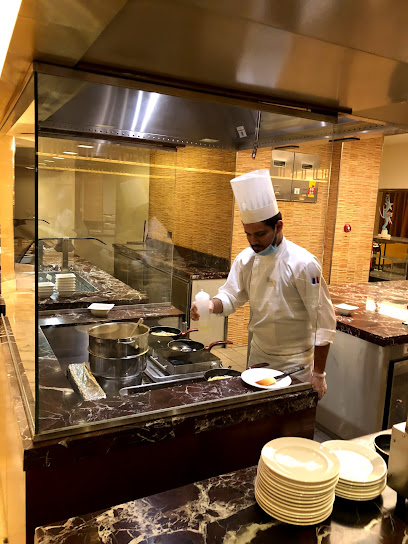
The Enchanting Asir Mountains
Nestled in the southwestern region of Saudi Arabia, the Asir Mountains offer a unique blend of natural beauty and cultural heritage. This mountainous region is known for its lush greenery, cool climate, and picturesque landscapes, making it a perfect escape from the desert heat. The Asir Mountains are home to the highest peak in Saudi Arabia, Jebel Sawda, which stands at an impressive 3,015 meters. The area is dotted with charming villages, terraced farms, and ancient forts, providing a glimpse into the traditional way of life of the local people. One of the main attractions in the Asir Mountains is the Asir National Park, a vast protected area that boasts diverse flora and fauna. Visitors can enjoy hiking, bird-watching, and picnicking in this serene environment. The park also offers camping facilities for those who wish to immerse themselves in nature. Another must-visit site is the Al-Soudah region, renowned for its breathtaking views, cool temperatures, and misty atmosphere. The cable car ride here provides a panoramic view of the mountains and valleys, making it a memorable experience. The Asir Mountains are also rich in cultural heritage. The city of Abha, the capital of the Asir Province, is known for its vibrant markets, traditional architecture, and cultural festivals. The Al-Muftaha Village in Abha is a cultural hub where visitors can explore art galleries, craft shops, and historical buildings. The Asir region is famous for its unique Asiri mud houses, adorned with colorful geometric patterns. These traditional houses are a testament to the region's rich history and artistic heritage.
Local tips in Asir Mountains
- Visit between June and October for the best weather and to experience the 'Asir Summer Festival.'
- Bring a light jacket as temperatures can drop, especially in the evenings.
- Stay in local guesthouses to experience traditional Asiri hospitality.
- Hire a local guide for hiking trails to ensure you don't miss hidden gems.
- Try the local cuisine, especially the traditional Asiri dish 'Aseedah.'
The Enchanting Asir Mountains
Nestled in the southwestern region of Saudi Arabia, the Asir Mountains offer a unique blend of natural beauty and cultural heritage. This mountainous region is known for its lush greenery, cool climate, and picturesque landscapes, making it a perfect escape from the desert heat. The Asir Mountains are home to the highest peak in Saudi Arabia, Jebel Sawda, which stands at an impressive 3,015 meters. The area is dotted with charming villages, terraced farms, and ancient forts, providing a glimpse into the traditional way of life of the local people. One of the main attractions in the Asir Mountains is the Asir National Park, a vast protected area that boasts diverse flora and fauna. Visitors can enjoy hiking, bird-watching, and picnicking in this serene environment. The park also offers camping facilities for those who wish to immerse themselves in nature. Another must-visit site is the Al-Soudah region, renowned for its breathtaking views, cool temperatures, and misty atmosphere. The cable car ride here provides a panoramic view of the mountains and valleys, making it a memorable experience. The Asir Mountains are also rich in cultural heritage. The city of Abha, the capital of the Asir Province, is known for its vibrant markets, traditional architecture, and cultural festivals. The Al-Muftaha Village in Abha is a cultural hub where visitors can explore art galleries, craft shops, and historical buildings. The Asir region is famous for its unique Asiri mud houses, adorned with colorful geometric patterns. These traditional houses are a testament to the region's rich history and artistic heritage.
When is the best time to go to Asir Mountains?
Unmissable attractions to see
Safa and Marwa (Saee)
Experience the profound journey of faith at Safa and Marwa, a significant pilgrimage site in Makkah steeped in Islamic tradition.
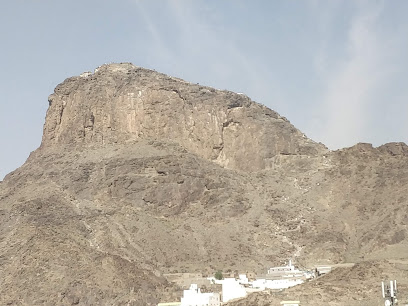
Hira Cultural District
Experience the profound heritage of Makkah at Hira Cultural District, a treasure trove of Islamic history and breathtaking views.
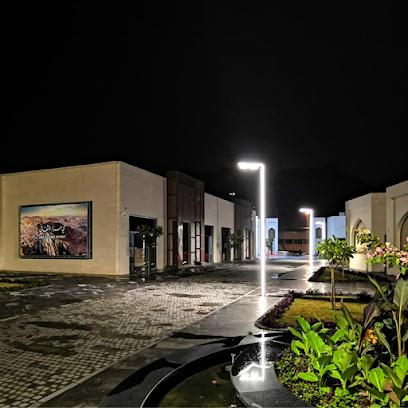
Aljhali Museum
Explore the Aljhali Museum in Abha for an immersive journey into Saudi Arabia's cultural heritage and history.
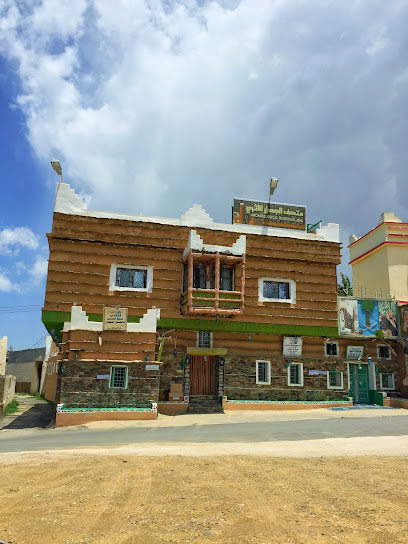
حداء
Explore the captivating beauty and cultural heritage of Hada, a hidden gem in Al Jumum, Saudi Arabia, perfect for nature lovers and adventurers.
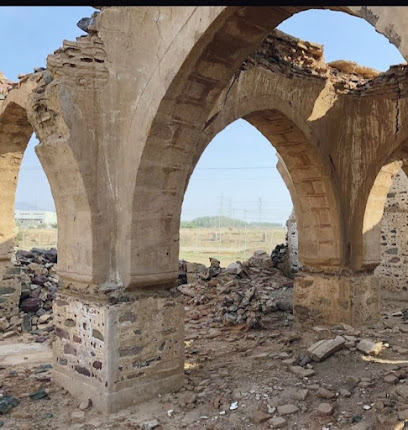
قصر البياضية
Discover the rich heritage of Makkah at Al-Bayadiyah Palace, a stunning historical attraction that offers a glimpse into Saudi Arabia's vibrant past.
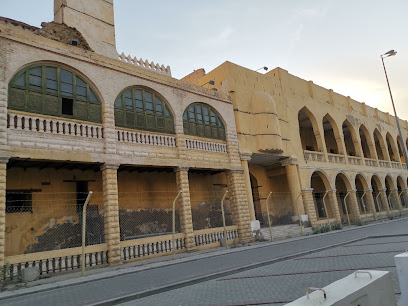
Museum of Human Heritage
Discover the fascinating journey of humanity at the Museum of Human Heritage in Makkah, showcasing cultural artifacts and interactive exhibits.
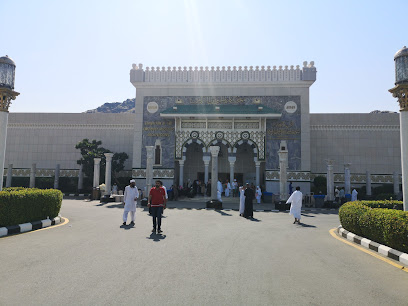
Qasr Bin Sulaiman historical
Discover the historical marvel of Qasr Bin Sulaiman in Makkah, a captivating landmark embodying the region's rich cultural heritage.
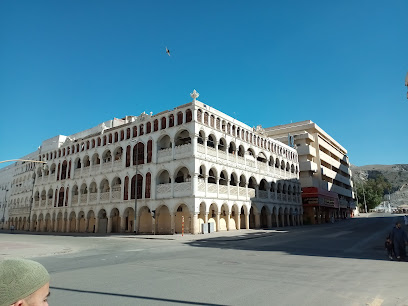
خزان جبل المدافع
Discover the rich history of Makkah at Khazan Jabal Al-Madfaan, a captivating museum showcasing the cultural heritage of this holy city.
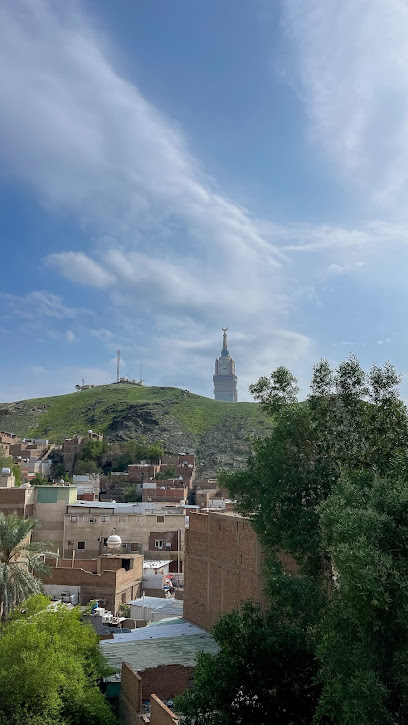
محمية طيور (خاصة)
Escape the hustle of Makkah at Al-Tiyour Park, a serene oasis featuring lush gardens, playgrounds, and peaceful pathways for relaxation and fun.

Suleiman's historic Palace
Explore the majestic Suleiman's Historic Palace in Makkah, a stunning historical landmark that showcases the rich heritage and architectural beauty of the region.
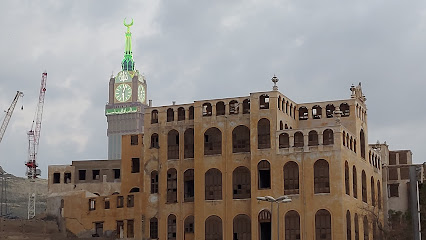
ساحة الحمام
Discover the tranquil beauty of Al Hammam Square in Makkah, a spiritual haven for pilgrims and tourists amidst the bustling city.
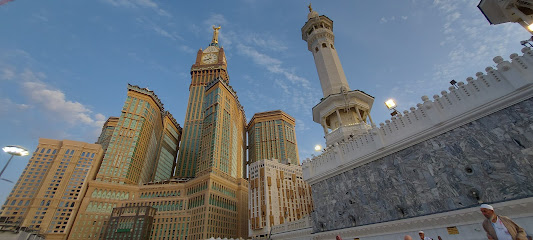
هلال برج الساعة
Discover the stunning Al Hilal Clock Tower in Makkah, a symbol of architectural beauty and cultural significance in the heart of Islam.
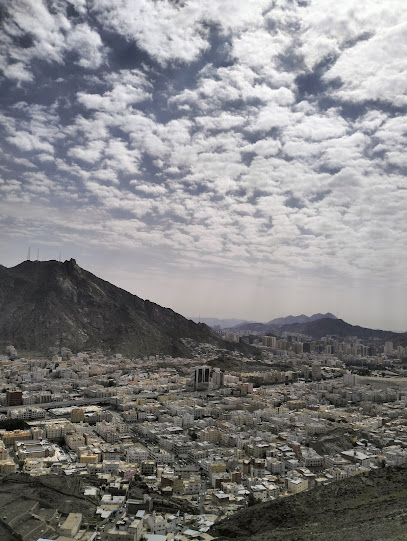
موقع صلح الحديبيه
Explore the historical significance of موقع صلح الحدبية in Makkah, a landmark that celebrates Islamic heritage and invites reflection.
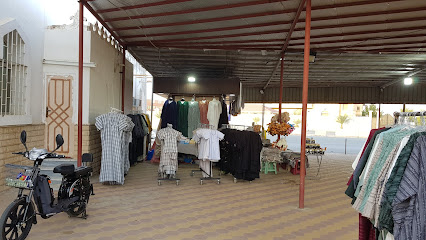
حمام الحرم
Discover the tranquility of Hammam Al-Haram, a serene escape in Makkah that harmoniously blends relaxation with rich cultural heritage.
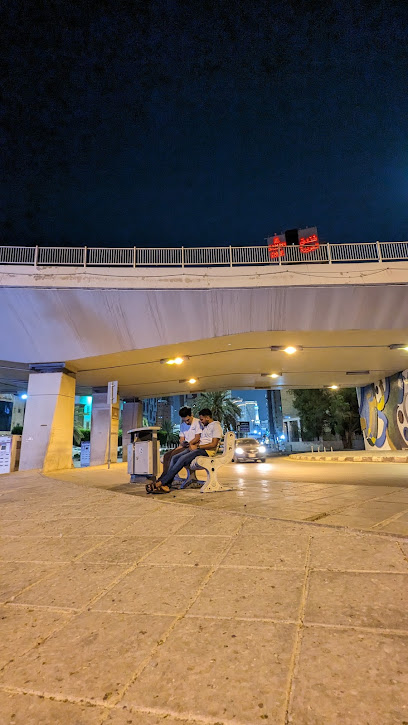
Wadi Jinn Makkah وادي الجن مكه
Explore the enchanting Wadi Jinn in Makkah, where natural beauty meets fascinating legends of the supernatural.

Markets, malls and hidden boutiques
Red Sea Mall
Discover the Red Sea Mall in Jeddah: A premier shopping destination with a blend of international brands, local shops, and diverse dining options.

Riyadh Gallery Mall
Discover the ultimate shopping experience at Riyadh Gallery Mall, where retail therapy meets entertainment in the heart of Saudi Arabia.
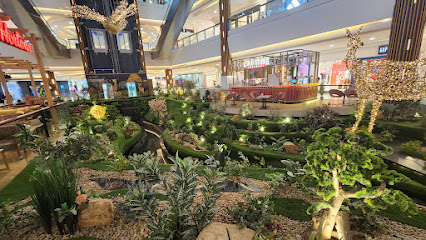
Cenomi Mall of Arabia
Explore the vibrant Cenomi Mall of Arabia in Jeddah, a shopping haven with an array of stores, dining options, and entertainment for all ages.
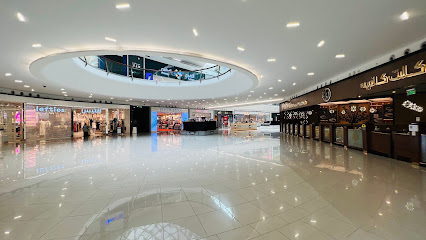
Al Rashid Mall
Discover Al Rashid Mall, a vibrant shopping and dining destination in Al Khobar, offering a diverse selection of stores and delicious eateries for every taste.

Mall of Dhahran
Explore the Mall of Dhahran - Saudi Arabia's top shopping destination with diverse stores, restaurants, and entertainment options for all.

Al Hijaz Mall
Explore Al Hijaz Mall in Makkah for a vibrant shopping experience with diverse stores, dining options, and family-friendly entertainment.
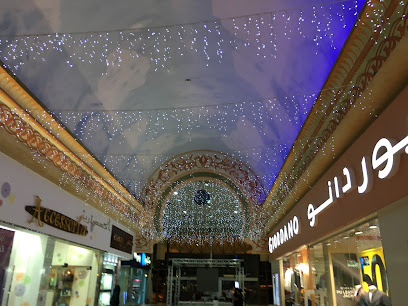
Kadi Mall | كادي مول
Discover a vibrant shopping experience at Kadi Mall, Jazan's premier shopping destination with diverse shops, dining options, and entertainment.

Jarir Bookstore | مكتبة جرير
Explore a world of books, art supplies, and electronics at Jarir Bookstore in Makkah – a must-visit for every tourist.

اكسترا - eXtra
Discover the latest in technology at eXtra in Makkah – a leading electronics store offering top brands and exceptional service.

Jarir Bookstore
Discover literature, art supplies, and electronics at Jarir Bookstore in Makkah, a must-visit destination for tourists and locals alike.

Al Hadaya center
Discover unique souvenirs and traditional crafts at Al Hadaya Center, Makkah's premier gift shop for tourists and pilgrims alike.
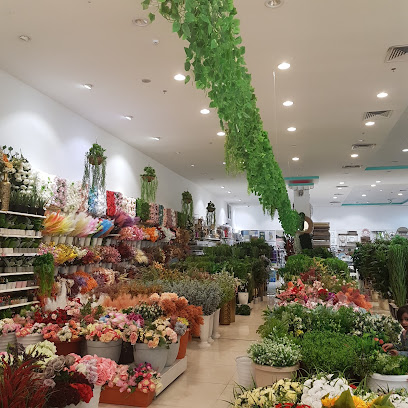
Gazzaz
Explore Gazzaz in Makkah for a unique selection of Arabian perfumes, blending tradition and modernity in every exquisite scent.
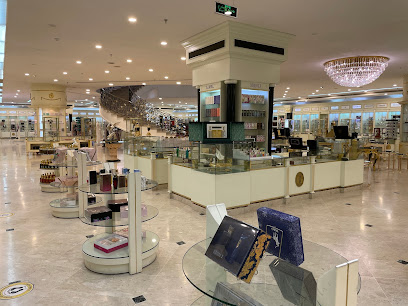
Matajer Al Saudia
Explore Matajer Al Saudia, where Makkah's grocery shopping meets cultural immersion, offering fresh produce and international delights.

Top Ten
Explore Top Ten in Makkah for a unique clothing shopping experience, blending traditional styles with modern fashion trends.
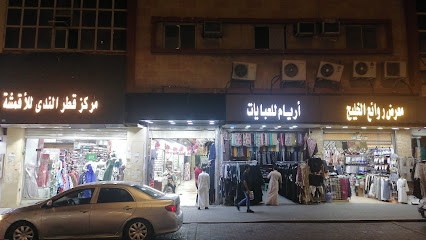
Al Haramain Perfumes
Explore exquisite fragrances at Al Haramain Perfumes in Makkah, a treasure trove of scents reflecting rich Arabian heritage and craftsmanship.

Essential bars & hidden hideouts
Makkah Clock Royal Tower A Fairmont Hotel
Discover unparalleled luxury and breathtaking views at the Makkah Clock Royal Tower, your gateway to the heart of this sacred city.

AlBaik
Experience the iconic taste of Makkah at AlBaik, famous for its delectable fried chicken and fast-food delights in a vibrant setting.

Swissôtel Hotel Makkah
Stay at Swissôtel Hotel Makkah for luxurious comfort and breathtaking views of the Holy Kaaba, just steps away from Masjid al-Haram.
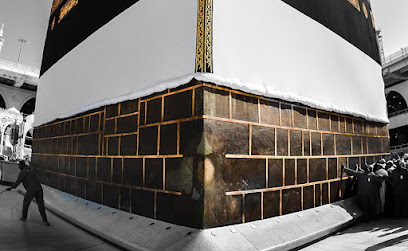
Alfursan Lounge
Experience unparalleled comfort and luxury at the Alfursan Lounge in Jeddah's King Abdulaziz International Airport, perfect for relaxation or productivity.
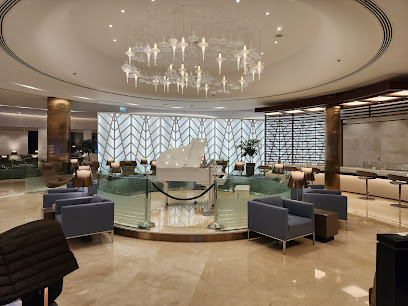
Four Seasons Hotel Riyadh At Kingdom Center
Experience unparalleled luxury and hospitality at the Four Seasons Hotel Riyadh, located in the iconic Kingdom Centre with stunning city views.
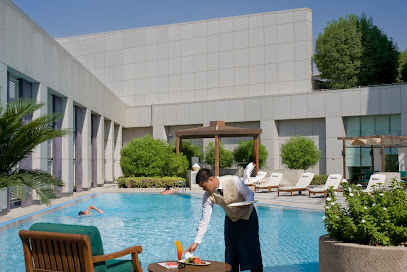
Voi restaurant | مطعم فوي
Savor exquisite flavors in a luxurious lounge setting at Voi Restaurant in Makkah, where culinary artistry meets elegant ambiance.
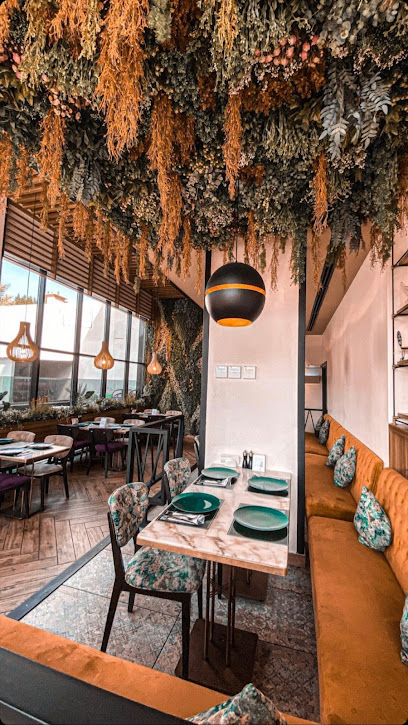
Raffles Makkah Palace
Experience unparalleled luxury and exceptional dining at Raffles Makkah Palace, steps away from the sacred Masjid Al Haram.
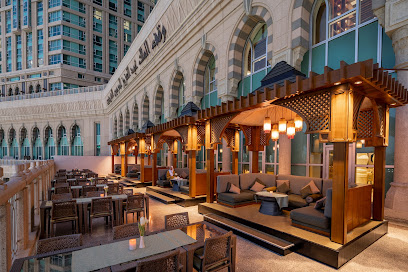
مطعم ولاونج شناشيل
Explore the lavish dining experience at مطعم ولاونج شناشيل, where exquisite flavors meet luxurious ambiance in the heart of Jeddah.
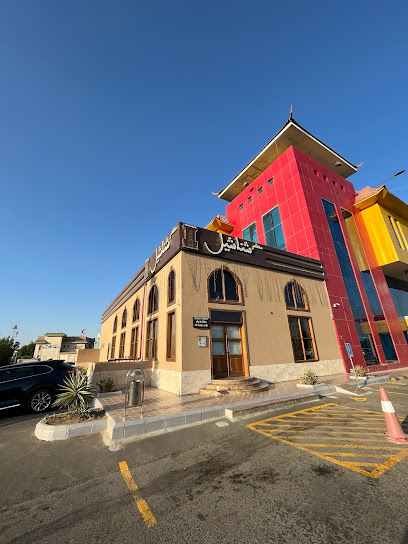
مطعم و مقهى مقام
Discover the flavors of tradition at Maqam Restaurant and Café in Makkah, where local and international cuisines blend in a cozy atmosphere.

جوفيال
Discover the vibrant ambiance and unique flavors at جوفيال, a premier café and cocktail bar in Makkah's bustling social scene.
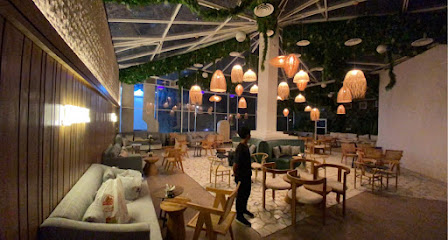
Social Shot Lounge & Bar
Discover the vibrant Social Shot Lounge & Bar in Jeddah, where exquisite dining meets a relaxed atmosphere, ideal for tourists and locals alike.

Grill House Restaurant
Experience the authentic taste of Makkah at Grill House Restaurant, where every bite is a celebration of local flavors and culinary tradition.
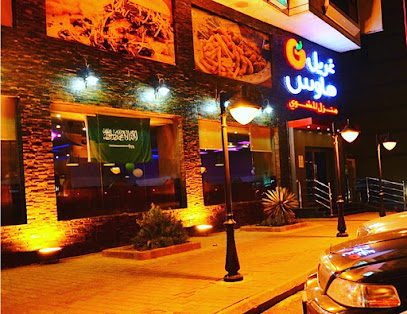
Elanor restaurant مطعم ايلانور
Discover the flavors of tradition and modernity at Elanor Restaurant in Makkah, where every meal is a celebration of culinary excellence.

The Roof Lounge
Discover a culinary gem in Jeddah at The Roof Lounge, where exquisite flavors meet stunning city views for an unforgettable experience.
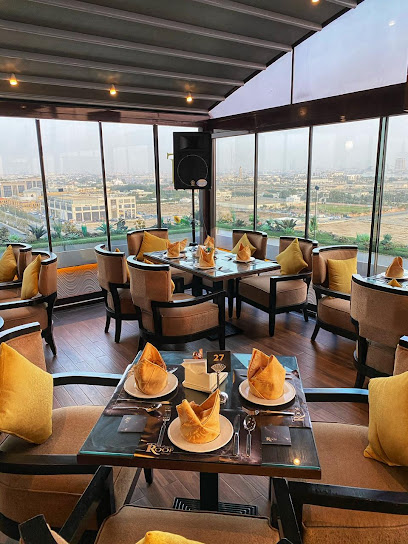
Local Phrases about Asir Mountains
-
- HelloMarhaba
[Mar-ha-ba] - GoodbyeMa'a salama
[Ma-a sa-la-ma] - YesNa'am
[Na-am] - NoLa
[La] - Please/You're welcomeMin fadlak
[Min fad-lak] - Thank youShukran
[Shuk-ran] - Excuse me/SorryAsef
[A-sef] - How are you?Kif halak?
[Kif ha-lak] - Fine. And you?Tamam. Wa ant?
[Ta-mam. Wa ant?] - Do you speak English?Hal tatakallam al-ingliziya?
[Hal ta-ta-kal-lam al-ing-li-zi-ya] - I don't understandAna la afham
[A-na la af-ham]
- HelloMarhaba
-
- I'd like to see the menu, pleaseA'ayza ara al-qayima min fadlak
[A-a-iz-a a-ra al-qa-yi-ma min fad-lak] - I don't eat meatAna la akul lahme
[A-na la a-kul lah-me] - Cheers!Saha
[Sa-ha] - I would like to pay, pleaseA'ayza as-sarf min fadlak
[A-a-iz-a as-sarf min fad-lak]
- I'd like to see the menu, pleaseA'ayza ara al-qayima min fadlak
-
- Help!Musaidah!
[Mu-sai-dah] - Go away!Ijra!
[I-jra] - Call the Police!Ittasil bil-shurtah!
[It-ta-sil bil-shur-ta] - Call a doctor!Ittasil bil-tabib!
[It-ta-sil bil-ta-bib] - I'm lostDha'ayt
[Dha-a-yt] - I'm illAna mareed
[A-na ma-reed]
- Help!Musaidah!
-
- I'd like to buy...A'ayza ashtry...
[A-a-iz-a ash-try] - I'm just lookingAna fahim
[A-na fa-him] - How much is it?Kam thamanuh?
[Kam tha-ma-nu] - That's too expensiveHadha ghali jiddan
[Ha-dha gha-li jid-dan] - Can you lower the price?Hal tastati' tawil as-sa'ar?
[Hal tas-ta-ti ta-wil as-sa-ar]
- I'd like to buy...A'ayza ashtry...
-
- What time is it?Kam as-sa'ah?
[Kam as-sa-ah] - It's one o'clockAl-wahidah
[Al-wa-hi-dah] - Half past (10)Nisf al-'ashrah
[Nisf al-ash-rah] - MorningSabaah
[Sa-baah] - AfternoonDhuhr
[Dhuhr] - EveningMasaa
[Ma-saa] - YesterdayAms
[Ams] - TodayAl-yawm
[Al-yawm] - TomorrowGhadan
[Gha-dan] - 1Wahid
[Wa-hid] - 2Ithnayn
[Ith-nayn] - 3Thalatha
[Tha-la-tha] - 4Arba'a
[Ar-ba-a] - 5Khamsa
[Kham-sa] - 6Sitta
[Sit-ta] - 7Sab'a
[Sab-a] - 8Thamania
[Tha-ma-ni-a] - 9Tis'a
[Tis-a] - 10Ashara
[A-sha-ra]
- What time is it?Kam as-sa'ah?
-
- Where's a/the...?Wayn...
[Wayn] - What's the address?Shu huwa al-`anwan?
[Shu hu-wa al-`an-wan] - Can you show me (on the map)?Hal tastaTi` an tuuriyani (`ala al-khaariTa)?
[Hal tas-ta-Ti` an tu-ri-ya-ni (`a-la al-kha-ri-Ta)] - When's the next (bus)?Mataa yantahii al-autobees al-qabli?
[Ma-ta yan-ta-hi al-au-to-bees al-qab-li] - A ticket (to ....)Tathqeef (ila ...)
[Tath-keef (i-la ...)]
- Where's a/the...?Wayn...
History of Asir Mountains
-
The Asir Mountains have been home to various ancient tribes and civilizations for millennia. Archaeological evidence suggests that the region was inhabited by hunter-gatherers as early as the Neolithic period. The tribes developed a rich tradition of rock art, which can still be seen in the form of petroglyphs scattered across the mountains. These early inhabitants laid the foundation for the complex social and cultural structures that would later emerge in the area.
-
From the 1st century BCE to the 6th century CE, the Himyarite Kingdom, a pre-Islamic kingdom in ancient Yemen, extended its influence into the Asir region. The Himyarites were known for their advanced agricultural techniques, including terrace farming, which transformed the mountainous terrain into fertile land. They played a crucial role in the incense trade, connecting the Arabian Peninsula with Africa and the Mediterranean world.
-
With the advent of Islam in the 7th century, the Asir region saw significant changes. The area became part of the early Islamic caliphates, contributing to the spread of Islam across the Arabian Peninsula. During the Abbasid Caliphate, the region gained strategic importance due to its location along pilgrimage routes to Mecca and Medina. This period also saw the construction of numerous mosques and religious schools, which remain important cultural landmarks.
-
During the 16th century, the Ottoman Empire extended its control over the Asir region. Despite nominal Ottoman rule, local tribes maintained a significant degree of autonomy. The Ottomans established administrative centers and built fortresses to exert control, but the rugged terrain and fierce independence of the tribes often limited their influence. This era is marked by a blend of Ottoman and local architectural styles, evident in the region's historic buildings.
-
In the early 20th century, the Asir region became a focal point during the unification of Saudi Arabia under King Abdulaziz Al Saud. The local tribes, led by Muhammad ibn Ali al-Idrisi, initially resisted Saudi control, leading to the Asir Rebellion in the 1920s. After a series of conflicts, the region was incorporated into the Kingdom of Saudi Arabia in 1932. This unification brought about significant administrative and infrastructural changes, integrating Asir more closely with the rest of the country.
-
Today, the Asir Mountains are celebrated for their unique cultural heritage and natural beauty. The region is known for its traditional Asiri architecture, characterized by colorful patterns and intricate designs. The annual Al-Soudah Festival showcases local customs, crafts, and cuisine, attracting visitors from around the world. Modern development projects have improved accessibility and infrastructure, making the Asir Mountains a popular destination for both domestic and international tourists.
Asir Mountains Essentials
-
The Asir Mountains are located in the southwestern region of Saudi Arabia. The nearest major city is Abha, which has Abha International Airport (AHB). The airport is well-connected with domestic flights from Riyadh, Jeddah, and Dammam, as well as some international flights from neighboring countries. From Abha, you can rent a car, hire a taxi, or use public transport to explore the Asir Mountains.
-
Transportation within the Asir Mountains region can be managed through several options. Renting a car is highly recommended for the flexibility it offers in exploring the mountainous terrain. Taxis are also available, and for shorter distances, local buses can be used. Public transportation is less frequent in remote areas, so having a car ensures you can visit all the key sites and attractions.
-
The official currency in Saudi Arabia is the Saudi Riyal (SAR). Credit cards are widely accepted in cities like Abha but may not be as commonly used in rural areas. It is advisable to carry cash for purchases in smaller towns and villages. ATMs are available in Abha, and it's a good idea to withdraw sufficient cash before heading into the mountains.
-
The Asir Mountains are generally safe for tourists. However, it's important to take standard precautions. Avoid isolated areas at night and keep your belongings secure in crowded places. While the region has a low crime rate, it’s always best to stay vigilant. There are no specific high-crime areas targeting tourists, but sticking to well-traveled routes is advisable.
-
In case of emergency, dial 997 for medical emergencies and 999 for police assistance. Abha has well-equipped medical facilities, including hospitals and clinics. It's recommended to have travel insurance that covers medical emergencies. Pharmacies are available for minor health issues, but it's wise to bring any necessary medications with you.
-
Fashion: Do dress modestly. Men should wear long trousers, and women should wear an abaya and cover their hair. Avoid revealing clothing. Religion: Do respect local customs. Always be aware of prayer times and avoid making noise near mosques. Public Transport: Do be respectful and offer seats to elderly passengers. Don't eat or drink on public transport. Greetings: Do greet people with 'As-Salamu Alaikum' and a handshake. Avoid physical contact with the opposite gender. Eating & Drinking: Do try local dishes and accept food graciously. Don't eat with your left hand as it is considered impolite.
-
To experience the Asir Mountains like a local, visit the traditional markets (souqs) where you can purchase local handicrafts and produce. Engage with locals; they are known for their hospitality and can offer insights into the region's culture and history. Don’t miss the opportunity to explore the ancient village of Rijal Almaa and take a hike in the Asir National Park. For a unique experience, visit during the summer festival when the region celebrates with traditional music, dance, and food.
Nearby Cities to Asir Mountains
-
Things To Do in Jeddah
-
Things To Do in Taif
-
Things To Do in Al Baha
-
Things To Do in Medina
-
Things To Do in Yanbu
-
Things To Do in Abha
-
Things To Do in Khamis Mushait
-
Things To Do in Al Ula
-
Things To Do in Jizan
-
Things To Do in Marsa Alam
-
Things To Do in Najran
-
Things To Do in Keren
-
Things To Do in Buraidah
-
Things To Do in Hail
-
Things To Do in Asmara





